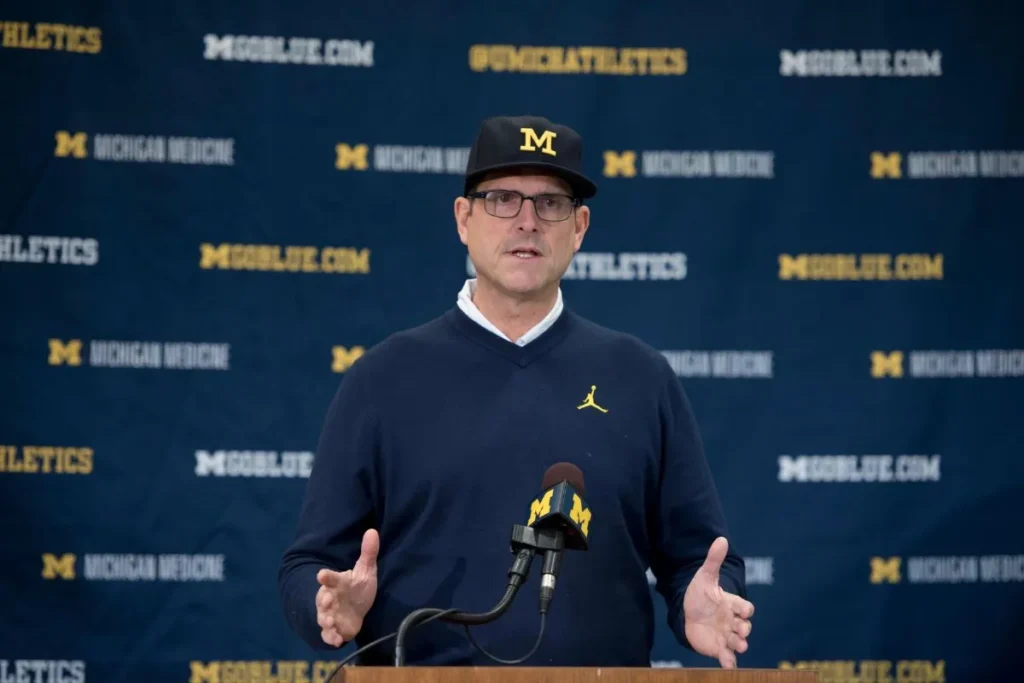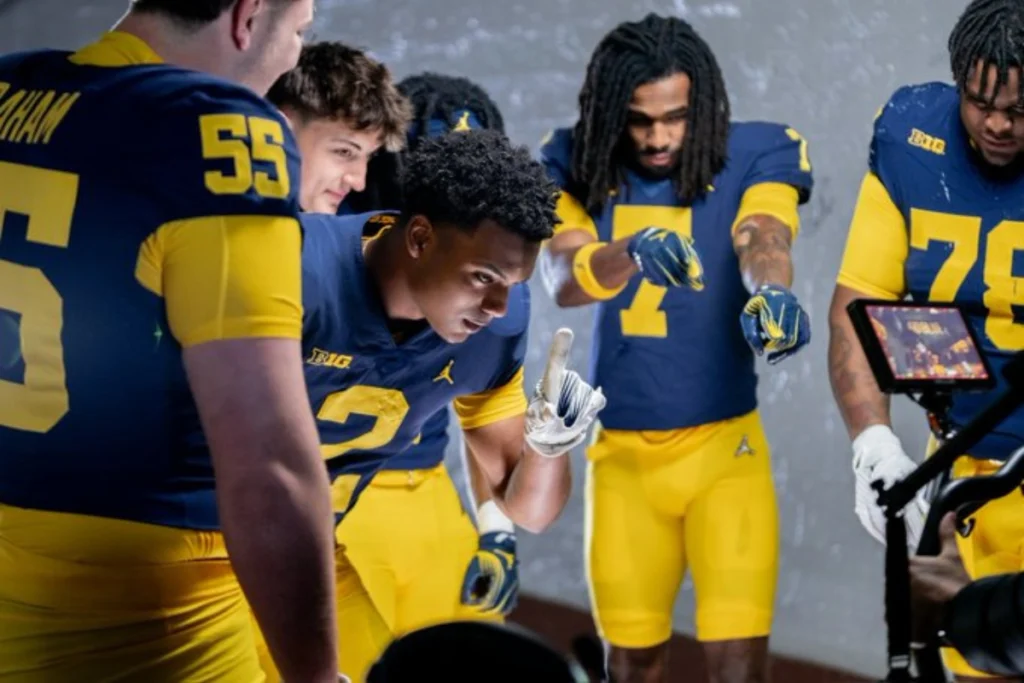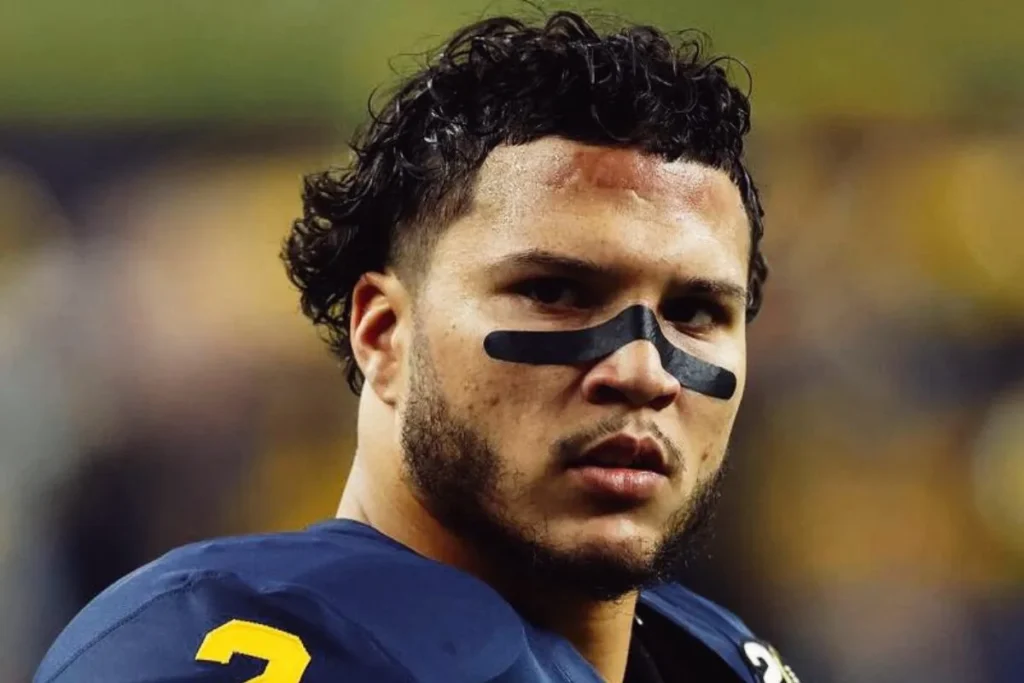Jim Harbaugh, the head football coach for the University of Michigan, has never been one to shy away from expressing his views. In his recent speech addressing the state of college football, Harbaugh took a decisive and impactful stand that should be lauded by all those who have the best interests of student-athletes at heart.
“The last time we met, you asked about the state of college football and issues…These are my views, opinions, as I see college football, college sports, take shape since my days as a student-athlete and now as a current coach.”
It’s commendable that Harbaugh is using his platform to stand up for the players. He brings a unique perspective as both a former student-athlete and a current coach. And, what’s evident from his speech is his unwavering commitment to seeing justice done.
Despite facing scrutiny with the NCAA’s recent investigation into alleged recruiting violations, Harbaugh bravely chose not to remain silent.
“I’m aware and understand, that when someone speaks out in defense of those without a voice, attempts are made to diminish the individual’s character and credibility.”
His dedication to amplifying the concerns of student-athletes is clear. He questions why key stakeholders are reaping vast financial benefits, yet the actual players remain largely uncompensated:
“What I don’t understand is how the NCAA, the television networks, conferences, universities and coaches can continue to pull in millions…without providing enough opportunity to share in the ever-increasing revenues.”
Furthermore, Harbaugh points out the hypocrisy in how the sport is perceived by its governing bodies, highlighting that it can’t be both a game and a business selectively, based on convenience:
“When student-athletes call it a game, corporate types call it a business. When the student-athletes call it a business, the corporate types call it a game.”
Jim Harbaugh opens his news conference discussing his views on the “big picture” of college football. Here he focuses on revenue sharing “don’t exclude the student-athletes from the profits” pic.twitter.com/LvGqEccI5S
— angelique (@chengelis) August 28, 2023
One cannot help but agree with Harbaugh when he emphasizes that the current system is unsustainable:
“Current status quo is unacceptable and won’t survive. My opinion, we capitalize on the talent, we should pay the talent for their contributions to the bottom line.”
Drawing parallels with major companies like Amazon, UPS, and US Steel, Harbaugh indicates that revenue sharing is not an untested concept. It has been proven to work across various industries. By reminding us of Michael Jordan’s mother’s insistence on revenue sharing with Nike, Harbaugh shows that this model can lead to mutually beneficial outcomes.
Being a former NFL player, Harbaugh’s personal experience provides more weight to his arguments:
“As an NFL player, I was part of the change in the NFL free agency rules and profit-sharing at the time. I lived it. I benefitted from it. So did thousands and thousands of players that followed.”
Jim Harbaugh’s speech isn’t just an airing of grievances. It is a call for actionable change, urging stakeholders to engage in a productive dialogue.
“What I am hoping to accomplish today is sparking constructive conversation and timely action between the NCAA, the conferences, coaches, and universities.”
As a passionate Michigan fan, I can’t help but feel immense pride in having Jim Harbaugh at the helm. Not just because he’s an excellent football coach, but because he’s a visionary leader who refuses to stay silent on pressing issues. All Michigan fans, and indeed the broader college football community, should appreciate the courage and integrity Harbaugh demonstrated in addressing these concerns.
Stay up to date on Michigan football and basketball news! Follow Wolverine Chronicle on Twitter, Youtube, Facebook, and TikTok. Keep an eye out for exclusive interviews, podcast episodes, and more!



